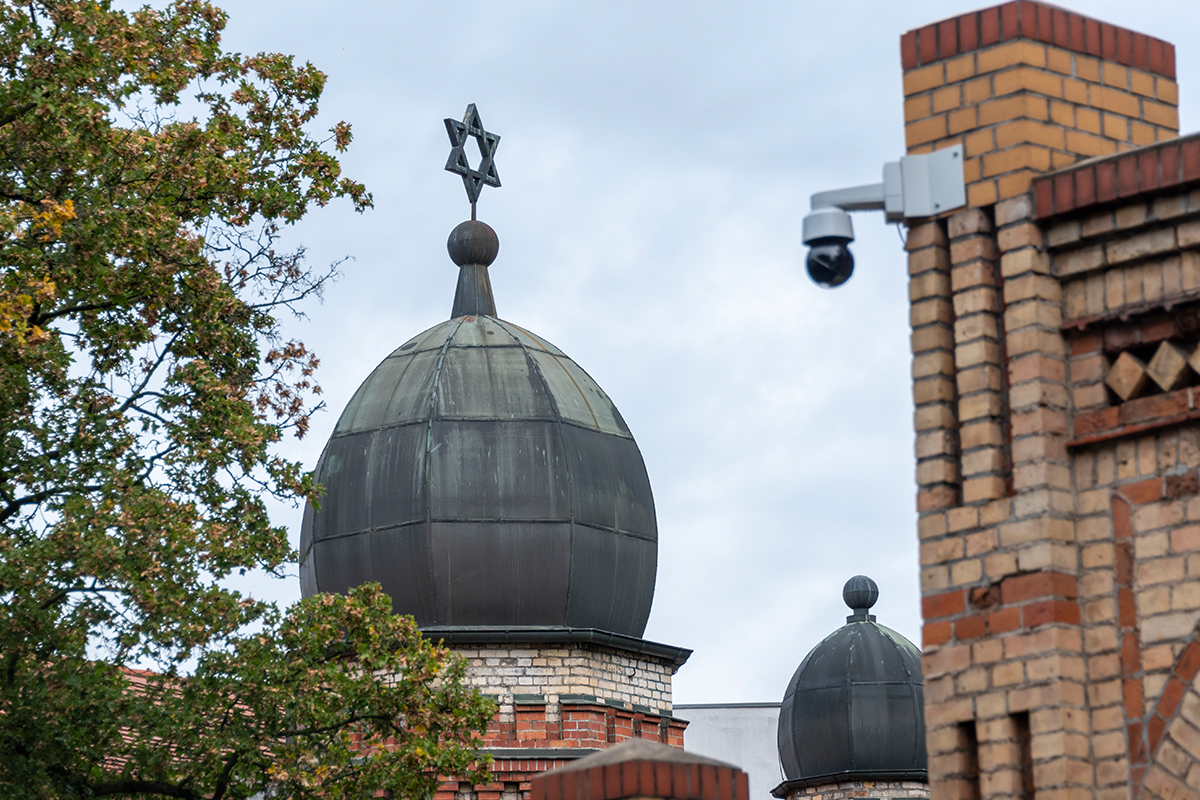My identity defies the thrust of the 20th century. Whereas many of my peers learned Spanish, French, or Hebrew in school, I took German, a language that has the dual honor of not being “useful” in the United States and not being “proper” for a Jewish kid to learn.
I failed to grasp the logic of that second point. Many of my ancestors were German-speaking Jews, which is why my father spoke (some) German. By learning German, I became part of that chain of transmission and able to reclaim a language that had defined so much of not only my family history, but also the evolution of Jewish thought.
For years, I questioned these qualifiers of my personhood and asked myself: Am I a German-speaking Jew? Or a Jew who speaks German?
Jews have lived in Germany since 321 CE, and of course, they became German speakers along the way. I am far from the first to ponder these aspects of identity, from Moses Mendelsohn who translated the bible from Hebrew into German to those who studied at the Hochschule für die Wissenschaft des Judentums (Higher Institute for Jewish Studies), including the first female rabbi, Regina Jonas, in Berlin.
And then the Nazis gained power and sought to cleave German from Judaism and Jews from Germany.
Seventy-five years after the start of the Nuremberg Trials, there remain people in Germany (though not only here) who are rooted in a toxic mixture that includes (but is not limited to) antisemitism, Holocaust denial, and misogyny. These people would love to live in a society without Jews and destroy Jewish life in Germany that many have worked (and continue to work) so hard to strengthen and rebuild.
I refuse to let the Nazis and neo-Nazis win. So I used my words. In a German court.
See, I survived an attack on Yom Kippur in Halle an der Salle, Germany on October 9, 2019. And then I became a co-plaintiff in the trial against the attack’s perpetrator.
Deciding to become a co-plaintiff was a process in itself. At first, I didn’t feel that the German courts would be able to deliver any form of justice. I worried about systemic antisemitism and xenophobia impacting the trial process as well as a general denial of the extent of neo-Nazi activity in Germany, where I’ve living since August 2019. Indeed, these sentiments surfaced during the six months of the trial.
Last spring, it seemed that every time I read the news, there was more information about another right-wing attack, such as that in Hanau on February 20, 2020, or a newly exposed right-wing network, like when a company in the German Special Forces was shut down due to repeated far-right incidents. And then the antisemitic, Holocaust-denying, COVID-19-related conspiracy theories began. That’s when I knew that I had a moral responsibility to become a co-plaintiff.
There I was, a German-speaking Jew (or perhaps a Jew who speaks German), who chose to live in Germany. And I had another choice to make. As a survivor of what could have been one of the deadliest attacks on Jews in the country since 1945, I had the chance to be taken seriously and give my perspective, something many survivors of antisemitic attacks are never given the chance to do.
In October, my attorney raised the possibility that I could share my perspective during the trial’s closing. I tentatively said yes, wanting to share my thoughts yet worried that thinking too much about the attack and its aftermath would further add to my trauma.
But I began to write, scribbling down ideas in German and ideas in English. The English felt familiar but never right. I struggled to structure my thoughts and find the correct words (there just simply isn’t a great translation of Erinnerungskultur, or memorial culture).
Jotting down my ideas in German felt better. This was, after all, the language in which most everything happened. And so it was settled — I would reclaim the German language as mine and would use it to criticize the majority society for their inaction to address antisemitism.
I myself did not appear in court. While others had testified earlier in the trial, I decided that it would be too much for me. But I still wanted to have my voice be a part of it; I knew how important individual narratives are and wanted mine to be amongst those collected. Having my attorney offer my perspective as part of her closing statement was the ideal solution.
I lacked focus that day in December when my statement was read. I took immense pride in my words. Yet I knew that they went against the narrative that Germany had tried to perpetuate — that “never again” would antisemitic atrocities occur on German soil. I was afraid of challenging that narrative, even though I was confident in my analysis.
And then the messages came in from friends and acquaintances present in the courtroom, messages of thanks and support. I felt only relief. It actually happened — a statement that I had spent weeks writing, describing an attack that I had spent months reliving, had been shared.
In the weeks after that led up to the sentencing on December 21, I read snippets of my statement in articles and social media posts. And I rejoiced that my words reached a broader audience and, in doing so, gave voice to the survivors and not the perpetrator.
So, next time someone asks me how German can be a Jewish language, I will respond that Jews like me who speak German make it so. Yes, I understand how it might be startling to hear German spoken in a Jewish context. But that’s not because German is foreign to Jews, but rather because our associations with it, from pop culture and beyond, have been relegated to the world of Nazis and WWII.
Am I a German-speaking Jew or a Jew who speaks German? I’m not sure that I’ll ever have a permanent answer to this question. Yet next time in a synagogue, looking at a siddur that’s printed in both Hebrew and German, I’ll be thinking one thing: German remains a language of the Jews and therefore a Jewish language. And continuing to speak it is an act of resistance.



